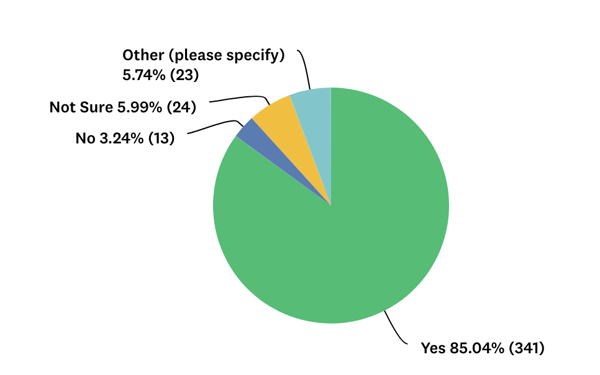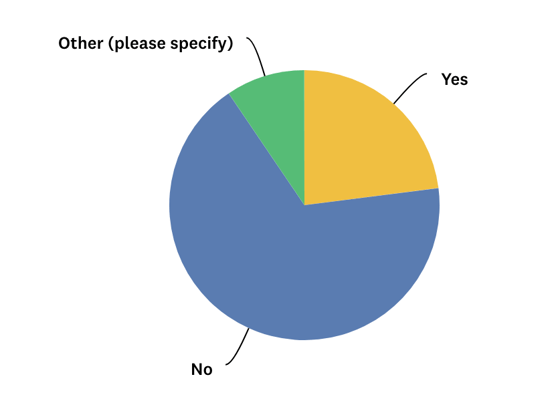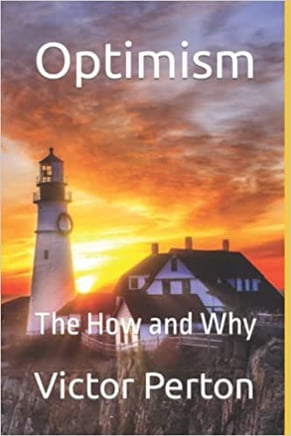Optimism and Strategy
Optimism is at the core of good strategy.
by Victor Perton
Optimism is at the core of good strategy. As strategy is a large part of my work on boards and as an adviser, I have made it my business to research the role of optimism in sound strategy.
Optimism is the critical component in developing and implementing a good strategy.
In our Centre for Optimism survey of 400 leading strategists, the consensus is clear that good strategy requires realistically optimistic leadership in the strategy process.
As Jeff Kerr-Bell told me, "Successful strategy cannot exist without optimism! Strategy is the act of navigating through challenges towards something better and you cannot envision or define better without being optimistic that it indeed exists! Therefore, no optimism =no strategy!"
Optimism is inspirational, realistic, and relevant to the lives of the people one tries to influence. Infectiously optimistic leadership is needed to integrate the contribution to shared success, balance our ambitions with the general good, and lead to the development of the tools necessary to deliver positive outcomes, even if limited.
According to Robert Masters, Chair of the Centre for Optimism, "good strategy requires realistically optimistic leadership in the strategy process."
The companies with the best consumer research get the optimism message. For example, Coca-Cola has included optimism in its mission statement: "To inspire moments of optimism and happiness through our brands and actions."
Optimism enables individuals to envision a better future and fuels the implementation of the strategy, providing the confidence necessary to achieve the desired outcome.
This optimism must be grounded in reality and data-based to avoid developing unrealistic or impractical strategies, ensuring execution is successful.
In addition to providing confidence, optimism helps individuals plan and account for less favourable outcomes, encourages focusing on achieving good results, and enables envisioning how things can be. Infectious optimism is needed to integrate the contribution to shared success, balance ambitions with the general good, and lead to the development of the tools necessary to deliver positive outcomes, even if limited.
A good strategy should pay attention to the facts but look for all the positives in each situation to maximise favourable results. As Professor Colin Jevons of Monash University asserts, "A strategy without optimism is doomed to fail - by definition! Any plan to influence the future must be optimistic."
As Nina Anderson of Anderson Advisory told me, "Optimism resides at the core of good strategy, it provides the platform for critical and clear thinking, the ability to challenge embedded knowledge, the humility to ask questions and be open to new ideas. It is also critical for engaging stakeholders and communicating the benefits of the strategy."
Nóirín Mosley, Director of Educate to Elevate and Project Optimism, said, "I believe strategy and optimism are intrinsically linked and co-dependent. If you aren't optimistic about your strategy, how can it achieve your desired outcome?"
Optimism is essential throughout the implementation phase as well. Without it, there will be less inclination to motivate others, embrace new initiatives, and adapt to market changes, as Nina Anderson further explains.
David Pich, Chief Executive of the Institute of Managers and Leaders Australia & New Zealand, said, "I have a relatively simple view that strategy and optimism go hand in hand. A leader arrives at a strategy via consultation, investigation and analysis. The strategy that is selected is selected because it is - all things being equal - the most likely to succeed."
Pessimism, on the other hand, is a recipe for inaction, disaster, and failure. Optimism at least offers a chance of meeting stretch targets and exceeding targets.
Optimism is critical in developing and implementing a successful strategy.
According to Charles Kovess, Author of Passionate People Produce, "A good strategy is one that ensures the organisation is growing, developing, thriving, and being sustainable at the same time. Optimism about the future is, therefore, crucial to design a strategy of growth, development, and thriving."
Optimism is necessary to envision a better future, develop the tools to deliver positive outcomes and provide confidence to achieve desired results.
As Richard Hames, a Futurist, notes, "if optimism and hope are at the core of strategy conversations, the strategy can result in levels of engagement, inspiration and trust that are both powerful and inimitable."
Here's a process for producing an optimistic strategy:
- Assemble a team of optimists: The first step in producing a great strategy is to gather a team of inherently optimistic people. These individuals should be excited about the future and believe anything is possible. You can always bounce ideas off black hats, pessimists and critics. (Read Surround Yourself with Optimists)
- Get optimistic leadership buy-in: It is essential to have leadership buy-in when it comes to an optimistic strategy. With their support, the strategy is likely to succeed.
- Ask all relevant people what makes them optimistic: Ask your team what makes them optimistic. The simplest question is "What makes you Optimistic? This will help you understand and use their perspective to inform the strategy. (Read "Ask What Makes You Optimistic?"). You are welcome to use The Centre for Optimism's online survey too.

- Scenario planning must be optimistic and realistic, not bleak: When conducting scenario planning, it is crucial to be optimistic and realistic. The scenarios should not be bleak but present a positive outlook for the future.
- Ensure each person opens up with what's going well, what makes them optimistic, and what plans they have to build a better future for the organization and the team: When conducting strategy and business planning sessions, ensure each person opens up with what's going well, what makes them optimistic, and what plans they have to build a better future for the organization and the team. This will help keep the conversation optimistic and solution-focused.
- Ensure facilitators are optimistic and upbeat: If there's a strategy or business retreat, ensure the facilitators are optimistic and upbeat. This will help set the tone for the session and keep it focused on positive outcomes.
- Measure optimism at the beginning and throughout the strategy period: One way to measure optimism is to interview people and ask them what makes them optimistic and feel optimistic. This will help you understand the level of optimism within your team and use it to inform your strategy.
- Explicitly refer to your optimism: Yarra Valley Water's 2030Strategy includes an explicit chapter, "An optimistic future," and expresses optimistic values like "Knowing we need to Be Brave So that we make A Positive Impact For our customers, communities, partners, the natural environment — and each other."
Remember, optimism is critical in developing and implementing a good strategy. By following these steps, you can produce an optimistic strategy that inspires your team and sets you on a path towards success.
Our Research on Strategy and Optimism
The Centre for Optimism's online survey entitled "Strategy and Optimism: Is Optimism the fuel for Good Strategy?" has asked over 400 people from 17 countries engaged in strategy about the role of optimism in strategy.
We have kept the web-based survey form open and you are welcome to complete it. Several strategists thanked us for the thought-provoking questions which sharpened their strategy review.
Do you believe that the purpose and objectives of strategy should be optimistic in nature?
We asked, "Do you believe that the purpose and objectives of strategy should be optimistic in nature?"
85% say yes.

On the other hand, most of their organisations do not collect data on optimism. Asked, "Do you measure optimism?", 68% said no.

Robert Masters, Chair, Centre for Optimism
"It does not matter what strategies you adopt to achieve your goals, as long as they include optimism in the ‘how’ and ‘why’...
"The ‘secret’ ingredient of corporate and political strategies is optimism. It is a vital additive to achieving all the objectives of a goal or mission. Unfortunately, many leaders continue to fail to include the word and its framework when developing their strategies. Leaders who recognise and promote it are better at achieving their mission. Churchill, for instance, embraced it in his famous defence speech of 13 May 1940 when he declared the goal was ‘victory, however long and hard the road may be’. Of himself, he said: “I am an optimist—it does not seem to be much use being anything else”
"Optimism inspires those to deliver the objectives of strategies.”
Daniel Redman
“Optimism is core to strategy. Optimism drives innovation in any strategy. It is the fundamental source of fire that lights the way for creativity to thrive."
Charles Kovess, Author of Passionate People Produce
“A good strategy is one that ensures the organisation is growing, developing, thriving, and being sustainable at the same time. Optimism about the future is, therefore, crucial to design a strategy of growth, development, and thriving.”
Nóirín Mosley, Director of Educate to Elevate and Project Optimism
"I believe strategy and optimism are intrinsically linked and co-dependent. If you aren’t optimistic about your strategy how can it achieve your desired outcome?”
Richard Hames, Futurist
"If optimism and hope are at the core of strategy conversations, the strategy can result in levels of engagement, inspiration and trust that are both powerful and inimitable."
Professor Colin Jevons, Monash University
"A strategy without optimism is doomed to fail - by definition! Any plan to influence the future must be optimistic."
Jeff Kerr-Bell
"Successful strategy cannot exist without optimism! Strategy is the act of navigating through challenges towards something better and you cannot envision or define better without being optimistic that it indeed exists! Therefore, no optimism =no strategy!"
Allan Shaw, when Principal, Knox School
“Strategy is about envisioning and planning for a better future. Without optimism there is little point in planning for a better future."
Nina Anderson, Anderson Advisory
"Optimism resides at the core of good strategy, it provides the platform for critical and clear thinking, the ability to challenge embedded knowledge, the humility to ask questions and be open to new ideas. It is also critical for engaging stakeholders and communicating the benefits of the strategy.
"Optimism is essential throughout implementation too, without it you’ll bring the wrong energy and will be less inclined to motivate others, embrace new initiatives and adapt to market changes."
Miriam Feiler, co-founder, bizzi.co
“Creating and implementing a good strategy is based solely on the end result we seek. The result inevitably involves a strong desire to win, prevail, succeed. The road to success is littered with missteps, mistakes and failures that can easily derail you. What is needed is optimism. Optimism is a muscle. Without it, you will not have the push-through to overcome seemingly insurmountable setbacks to stick to your game plan and see your strategy through to successful completion."
David Pich, Chief Executive of the Institute of Managers and Leaders Australia & New Zealand
“I have a relatively simple view that strategy and optimism go hand in hand. A leader arrives at a strategy via a process of consultation, investigation and analysis. The strategy that is selected is selected because it is – all things being equal – the best strategy for a given situation. It is, therefore, by definition, a positive process and a positive outcome. Even if the strategy itself doesn’t appear to be ‘positive’ – it is the best approach at the time for the business, team or organisation. So, I consider optimism and sound strategy to be highly correlated. In short, a leader creates the strategy, and she needs to own that strategy and be accountable for it. It’s her strategy, and she needs to be optimistic that it will work."
Paul Pastulovic , Divisional Manager, Yarra Valley Water
"Strategy and optimism go hand in hand, a good strategy has its roots in optimism. When you are building for the future, if you don't have a level of optimism in what you are doing, you can miss opportunities that can present themselves."
Adam Bowcutt, Psychologist
“Optimism must be the foundation of strategy because the power of collective confidence helps create sustained energy and momentum. Consistent high performance is a result of an optimistic and purposeful vision of the future."
Chris Reddy, Leadership Coach
"A good strategy requires clear goals and aspirations, which by default is future focused optimism. Successful strategies rely on commitment, momentum and support from others. Bringing these together using a collaborative approach with strong values and positivity, only enhances long term strategic outcomes."
Mick Farrell, CEO of Resmed
“Optimism is the triumph of hope over fear, of truth over deception, but it must be grounded in reality. Optimism without realism is just a dream; hope alone is not a strategy. Detailed planning of scenarios, laying out of plans towards an ambitious goal, and then inspiring a team to climb that hill together with passion and a mission greater than oneself – that combination is a sure path to success.”
Natalie Foeng, CFO, Yarra Valley Water
"Optimism is a critical enabler of growth, new opportunities and sustainable business. We are now at a turning point with strategy, where our days of surviving purely on profit and risk mitigation are numbered. Optimism is ultimately what will keep our businesses sustainable."
Ash Hamer, Yarra Valley Water
"Without optimism in a strategy, there is no hope of excellence. Optimism in a strategy provides enthusiasm and drive, but this should always be tempered with a touch of realism."
Patrick Bench on Optimism and Strategy
Robert Hillard on Optimism and Strategy
Megumi Miki, Author of ‘Quietly Powerful’
“Without optimism, strategies will become defensive and focus on risk avoidance. While such strategy may be necessary for short term survival, at some point, optimism is required to develop a more proactive, innovative and growth-oriented strategy. I believe some organisations which have continued a defensive cost-cutting strategy for prolonged periods have lost a sense of optimism. Such approaches get in the way of innovation as individuals in these organisations become even more fearful and risk-averse. Optimism, on the other hand, enables possibilities, experimentation and learning from mistakes.”
Narendra Modi, Prime Minister of India
"Your foremost strategy should be to turn the pessimistic mindset to an optimistic system."
Noam Chomsky
"Optimism is a strategy for making a better future. Because unless you believe that the future can be better, you are unlikely to step up and take responsibility for making it so."
David Sharrock, author of Fighting for Enterprise Success: through the eye of the tiger.
"With business strategy itself, optimism needs to underpin and influence strategic direction and planning. Setting a strategic direction that will enable a business to stand out in the marketplace from all others in the same industry is premised on hope, namely, hope for a better future for the business as it works to its competitive advantage. It then takes the formation and implementation of planning to enable the overall strategy to work. The mindset of a leader and team members alike is essential here. There is no room for half-belief when they are working to an agreed strategy. There is no point in them setting goals and plans with a negative mindset while contemplating failure and envisaging defeat. They must envisage the end result and work wholeheartedly toward its achievement, full of hope, and sharing an optimism that all their efforts will be successful in the end. Their optimism must not be disingenuous. It must be grounded in reality and tested against milestones, reassuring them that good progress is being made.
"When it comes to good business strategy, hope fuels optimism, just like a match lights a fire, while optimism acts like oxygen, keeping the flames alight."
Derek Rowe
Optimism and wishful thinking are not the same thing. In some ways they are opposites. Optimism is fed by research and a profound understanding of how things actually are. Wishful thinking is a lazy version of hope. An example of wishful thinking might be Gallipoli - Churchill's great folly. What was he thinking, or perhaps more accurately, crossing his fingers, would happen?
Conversely, an example of strategic optimism - i.e. placing positivity squarely within a pragmatic framework of what the evidence says is possible - would be Great Britain's dam-busting bouncing bomb program. The unrelenting trial and error required to perfect a technique that was beyond complex indicated indefatigable optimism, perhaps best expressed in the age-old truism, 'practice makes perfect'.
Heads did not drop as, again and again, test bombs missed their target... until they didn't.
Optimism is the tool we need to keep going when when the data suggests that the only distance between what has happened and what hasn't happened yet is hard work, recalibration and incremental steps in the same direction.
Mark Dixon, Chief Executive Officer (CEO) Fiji Revenue and Customs Service, Commissioner of Taxes, Commissioner of Customs and Border Security.
"A good strategy is one where every member of the organisation feels as though they have had a contribution to it, this then creates a culture of ownership and pride that drives positivity throughout the team as you jointly deliver against the strategy that everyone owns and believes in."
Lesley Hughes, Distinguished Professor of Biology
“I’m optimistic about the future. I’ve come to the conclusion that hope has to be a strategy.
“You have to use hope as a motivator to keep going, because if you give up, if I give up, if all of the other scientists give up, if all of the other advocates and people that care give up, then we are lost. We can’t afford to give up. Therefore, we have to keep hopeful.” (2023)
Jeroen Kraaijenbrink
"Optimism equals hope plus realism. Strategy equals intent plus optimism."
Read more of these inspiring quotable quotes in "Optimism: The How and Why" by Victor Perton, CEO of The Centre for Optimism.


.svg)